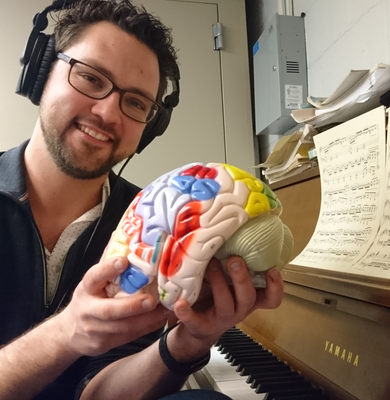
The coronamusic phenomenon as a window into the potential adaptive function of topically tailored musical repertoires
Niels Chr. Hansen
Aarhus Institute of Advanced Studies & Center for Music in the Brain, Aarhus University, Denmark
Despite music’s omnipresence in cultures across time and space, it remains a mystery why humans invest valuable time and vast resources on crafting and listening to organized sounds. During the coronavirus lockdowns of 2020, musical engagement became the potentially most frequent leisure activity, beating exercise, sleep, and consumption of other media as the most effective strategy for enhancing mental health for at least half of the general population. In this talk, I draw on recent results from the global MUSICOVID research network and a brand-new special issue on the topic to demonstrate how corona-themed music was created and consumed to cultivate collective connections and seek solitary solace. Our international survey study (n=5113), for example, showed that interest in coronamusic emerged as the strongest predictor of successful coping via music. People experiencing negative emotions used music for solitary emotion regulation whereas positive-experiencers used it as a proxy for social interaction. Follow-up studies of coronamusic videos from our crowdsourced database, and social-media data from Twitter, Spotify, Reddit, and YouTube largely support this bifurcation in adaptive musical use during pandemic isolation. Throughout human prehistory, topical musical innovations such as coronamusic may thus have served to build psychological resilience when faced with societal crisis.